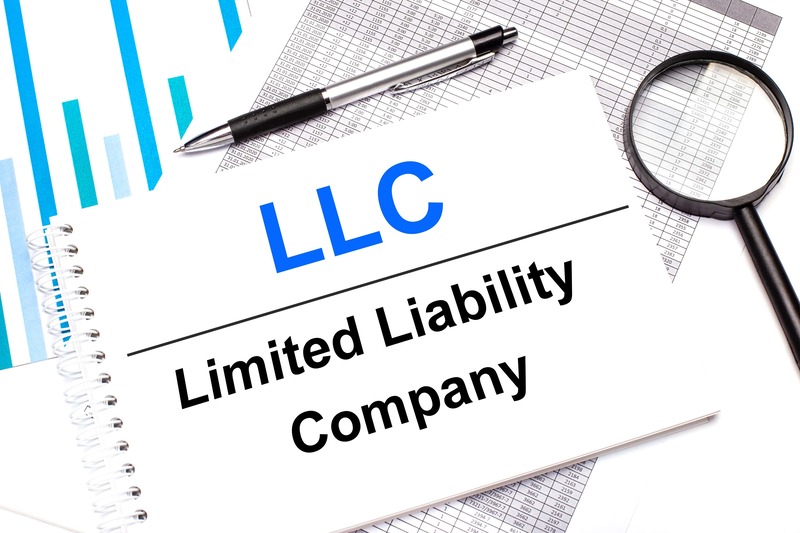Transferring an LLC into a trust can be an excellent way to protect your business and assets. This process may seem complex, but it can guarantee your business is handled according to your wishes. Understanding how to put LLCs in trust is key to making sure your family benefits from your hard work.
In this article, we will explore the benefits and drawbacks of putting your LLC into a trust and provide a step-by-step guide to help you through the process. We aim to make this transition as smooth as possible for you. Whether you are planning for the future or want to safeguard your interests, this guide will help you make an informed decision.
Understanding Trusts And LLCs
Before learning how to transfer your LLC into a trust, it’s important to understand what a trust and an LLC are and how they function. An LLC, or limited liability company, is a business structure that combines the limited liability protection of a corporation with the tax benefits of a partnership or sole proprietorship. This structure protects its owners, known as members, from personal liability for the company’s debts and obligations. Trusts, on the other hand, are legal arrangements in which a trustee holds and manages assets for the benefit of designated beneficiaries. Trusts can be revocable or irrevocable, each offering different levels of control and protection.
A revocable trust allows the grantor to modify or revoke the trust during their lifetime, while an irrevocable trust cannot be changed once established. Trusts can be used for various purposes, such as managing assets, protecting wealth, and confirming that a person’s wishes are carried out after their death. By placing an LLC in a trust, you can enjoy the benefits of both structures, providing enhanced asset protection, privacy, and a clear succession plan for your business.
Benefits Of Transferring An LLC To A Trust
Transferring an LLC into a trust offers numerous advantages. It provides enhanced asset protection, guaranteeing that your business is safeguarded from potential creditors and legal claims. When an LLC is owned by a trust, its assets are shielded, preventing them from being used to satisfy personal debts. This added layer of security is particularly beneficial for business owners concerned about potential liabilities.
Estate planning is another major advantage. By placing your LLC in a trust, you can avoid probate, a lengthy and costly legal process. A trust facilitates a seamless transfer of ownership upon your death, allowing your family or designated beneficiaries to continue operating the business without interruption. This can be crucial for family-owned businesses where continuity is key.
A trust can also offer tax benefits. Depending on the type of trust used, you may be able to reduce estate taxes, as the assets held within the trust are not considered part of your taxable estate. This can result in significant tax savings, preserving more of your wealth for your beneficiaries.
Additionally, a trust provides privacy. When a trust owns your LLC, your business interests are not publicly disclosed, offering a level of confidentiality. This can be important for those who wish to keep their financial affairs private.
Step-by-step Guide On How To Transfer Your LLC Into A Trust
Now that you understand the benefits and drawbacks, let’s explore how to put LLC in trust with this step-by-step guide:
- Create A Trust: Begin by creating a trust that will own your LLC. Work with an experienced estate planning attorney to draft a trust document that outlines the terms and conditions of the trust, names the trustee and beneficiaries, and provides instructions for managing the trust’s assets. Choose between a revocable or irrevocable trust, depending on your specific needs and goals.
- Transfer Ownership: Transfer ownership of your LLC to the trust. This involves executing an assignment of membership interests and transferring your ownership interest in the LLC to the trust. Update the LLC’s operating agreement and membership ledger to reflect the new ownership structure.
- Amend Operating Agreement: Review and amend the LLC’s operating agreement as needed. Verify that the agreement allows for the trust to be a member and outlines any specific requirements or restrictions related to trust ownership. This may include provisions for managing the business, distributing profits, and handling any changes in membership.
- Appoint A Trustee: Select a qualified trustee to manage the trust and oversee the LLC’s operations. The trustee should have experience in business management and a clear understanding of your objectives. Choose someone trustworthy and competent to ensure that your business is managed according to your wishes.
- Notify Beneficiaries: Inform the trust’s beneficiaries about the terms of the trust and the LLC’s management. Make sure they understand their rights and responsibilities under the trust and address any questions or concerns.
- Regularly Review And Update: Periodically review and update the trust document and LLC’s operating agreement to ensure they continue to meet your needs. Work with an attorney to make necessary changes and keep the trust current with any legal or financial developments.
- Understand Legal Requirements: Familiarize yourself with the legal requirements for transferring an LLC into a trust in your state. Different states may have varying rules and regulations regarding trust ownership of an LLC, so it’s important to understand any specific legal obligations.
- Consider Tax Implications: Consult with a tax professional to understand the tax implications of transferring your LLC into a trust. Depending on the structure of the trust and the LLC, there may be potential tax consequences, such as changes in how the LLC’s income is taxed or potential estate tax savings. A tax advisor can help you plan for these implications and guarantee compliance with tax laws.
- Consult Professionals: Seek guidance from experienced professionals, including estate planning attorneys, business attorneys, and tax advisors. These experts can provide valuable insights and verify the process is handled correctly and in line with your objectives.
- Communicate With Stakeholders: Keep open lines of communication with any stakeholders, including business partners, investors, and family members, to ensure they understand the implications of transferring the LLC to a trust. Address any concerns they may have and provide reassurance about the continuity of the business.
Successfully Transferring Your LLC Into A Trust
Transferring your LLC into a trust can be a powerful strategy for protecting your business and assets while enabling a smooth transition of ownership. By understanding how to put LLCs in trust and following the steps outlined in this guide, you can make an informed decision that aligns with your personal and financial goals.
While the process may involve legal complexities and potential costs, the benefits of asset protection, estate planning, privacy, and tax savings can be well worth the effort. By partnering with experienced professionals like Nevada Trust Company, you gain access to industry-leading expertise that can help you navigate these challenges with confidence. Our team is dedicated to ensuring that your assets are protected, your estate is efficiently planned, and your financial goals are met, securing your business and personal wealth for the future.
By planning and transferring your LLC into a trust, you can ensure your hard work and achievements are protected and preserved for future generations, providing peace of mind and financial security for you and your loved ones.
For more information about our investment management services, get in touch with us.





